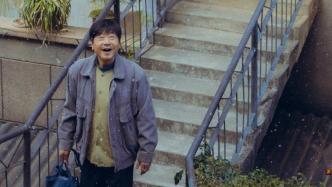
"Half a meter from the ground" is the feeling director Xin Shuang has been pursuing in his works. Specifically, it means that in a very realistic scene, there are some very romantic things.
Realism, such as the description of hometown, the life of ordinary people in Northeast China, water fishing, steel factory, video hall...romantic, such as two young people walking on the long railroad track in the autumn sunshine, reading a Another example is the old man crossing the cornfield, yelling "Look ahead, don't look back" to himself on the train 20 years ago.
No matter how the audience evaluates "The Long Season", for Xin Shuang, this journey has no regrets. If "The Hidden Corner" reflects his ability more, "The Long Season" embodies his affection for his hometown everywhere.
"All the things I want to convey are already in that scene. I think, because this film brought positive things to me and my hometown, after filming this scene, I feel closer to my hometown .”

The Long Season poster
1
When Xin Shuang saw the original story, it was already the fourth draft. The story is about an elderly Northeast taxi driver trying to solve a problem in his life. What attracted him were some characters in this story, some details with a sense of life, "very similar to some real people around me".
When the adaptation started, the case in the story became a relatively big obstacle. In the current film and television market, crime themes set in Northeast China have already been filmed so quickly that the audience is tired. "We will be more worried about how to make the audience look less repetitive."
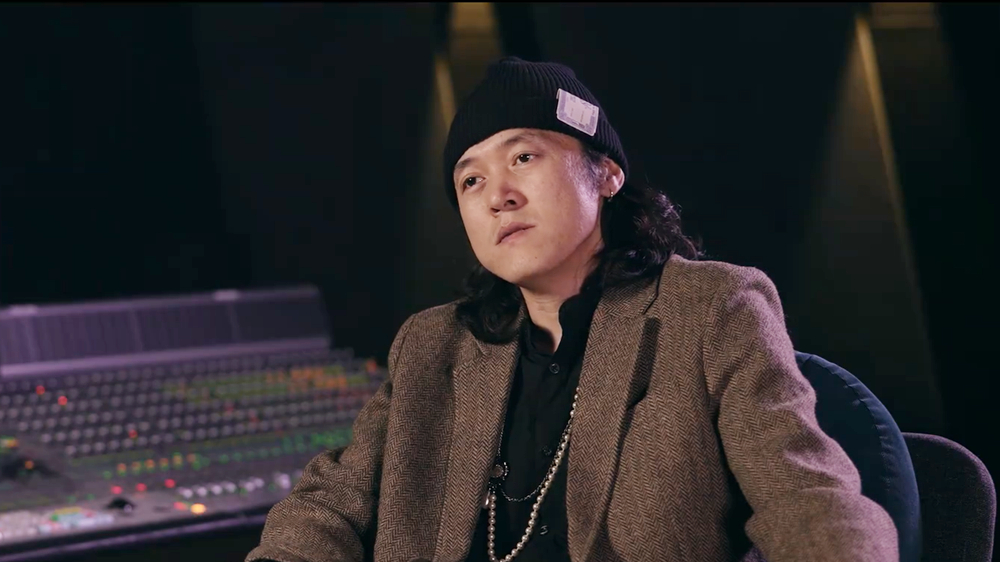
Director Xin Shuang
Secondly, the case is the core of the story, which is not the same as Xin Shuang’s personal creation logic, “The case should be something that shows people, especially like threading a needle. .This is also the problem that we have been continuously solving in the process of doing this project.”
It took nearly a year for the adaptation, and he first had to determine the direction. The previous perspective revolved around Wang Xiang alone, focusing on suspense and reasoning. "In the original script, many people are not in the modern timeline. Gong Biao Ma Desheng is more like a more functional character who assists Wang Xiang to find the truth." Now, the script has become a story of a group of people from generation to generation, with the theme of "time changes leave traces on people".
After the direction was determined, the focus of the story shifted from the case to the characters. Xin Shuang wanted to make the people in the story stronger and richer, so he invited the writer Ban Yu to join in the creation. "Before, I really liked the way of describing the characters in Mr. Ban Yu's book, which has a very lifelike quality."
After Ban Yu joined, he put forward an important idea for character adjustment, "He took the character Li Qiaoyun from the past timeline to the current timeline." This approach inspired Xin Shuang. Later, more and more characters, such as Li Qiaoyun and Xing Saner also appear in the two timelines of the past and the present, and the theme of time and people is strengthened.
Eleven months later, Xin Shuang changed the Northeast suspense script "Blade of Winter" into a story with a deep personal brand. Because what I want to talk about is the theme of people and fate, so the original title doesn't quite fit the temperament of the story.
"One time we were chatting after the script meeting. I read Ban Yu's unpublished novel titled "The Long Season". I thought the name was very special. I felt that the name was very suitable for this story. Like a title for this story."
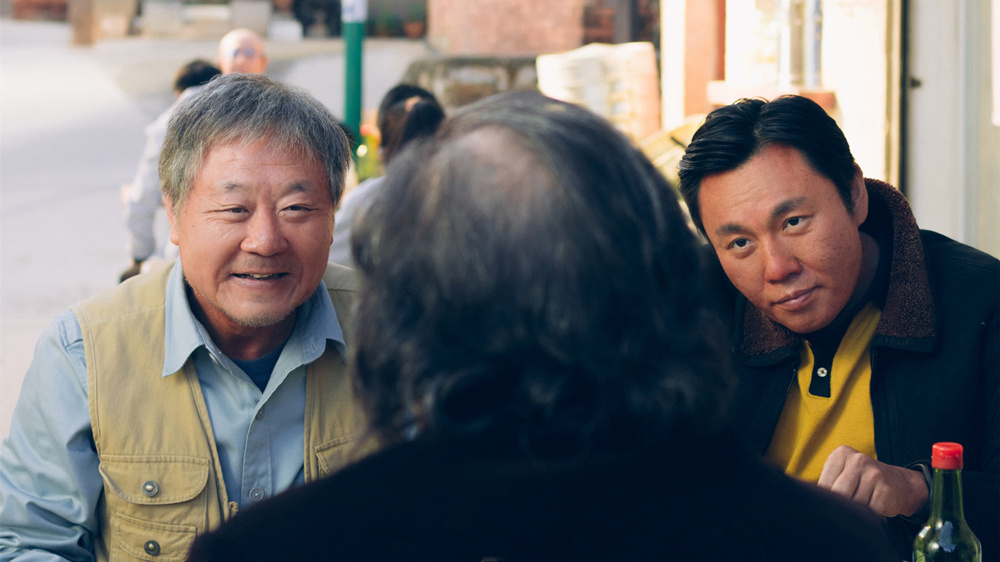
"The Long Season" Stills
2
At the beginning of "The Hidden Corner", Zhang Dongsheng pushed his father-in-law and mother-in-law off the cliff, which firmly attracted the audience's attention. And "The Long Season" has a slow start that some viewers find. According to the current TV drama creation rules, let alone the golden seven minutes, the first three episodes have passed, and the audience has not seen any exciting plots. Taxi driver Wang Xiang (played by Fan Wei) and his brother-in-law track down a car accident in which the victim disappeared, interspersed with the daily life of him and his wife and children 20 years ago.
"I didn't think about what kind of story must have the beginning. If you think about it that way, it is a kind of arrogance for the audience, because before the work is actually online and seen by the audience, the audience in your mind or in your mouth , is actually just a concept, it is not real, it is your imagination. But at that time, we have to be the first wave of 'audience' with double quotation marks, and judge whether the way the story unfolds is correct Reasonable, don't casually underestimate the audience, thinking that the audience will accept the opening."
Secondly, for the slow-moving plot, Xin Shuang explained that they designed it when they created it. This is an "iceberg-shaped story". We have to pave the way for each character in detail in front of us, and some idle words in the front are foreshadowing, which will generate a lot of power behind it. After the story unfolds, you will find that the bottom part is very huge."
Also because of the foreshadowing of various foreshadowings, almost most of the viewers have been able to guess the truth of the case by the 10th episode. When to reveal what clues as a foreshadowing, Xin Shuang was still adjusting on the editing stage until the end, "Creation is a very dynamic thing. Maybe it was just a seed, and now it grows in another way, but when you say it is in the seed , Is this thing very vague? It’s hard to say. Until the time of editing, the content we created is still changing and growing.”
It is risky in the suspense genre to let the audience guess the truth of the story early because of various clues, but Xin Shuang does not think this is a problem. "Our story type is first the plot, followed by the suspense crime. The tenth After the episode aired, I saw a lot of feedback from the audience, saying that at this moment I don't care what happens in this case at all, because at that moment they will realize that the core of the whole story is not for you to figure out what is going on in this case , If we talk about this case in sequence, it is not a very complicated case, this project itself is not a case-based reasoning, nor is it a story that focuses on solving cases, what we are talking about is time and fate.”
The themes of time and fate ultimately fall on each character, and the effect after the episode is broadcast is indeed as Xin Shuang said. The audience is more willing to pay attention to and analyze the characters, from the protagonists Wang Xiang, Shen Mo, to Luo Meisu, Yin Hong and others.
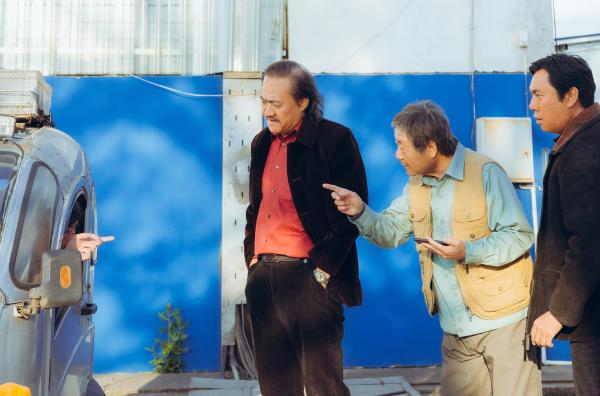
"The Long Season" Stills
For example, Gong Biao, who has received a lot of attention, was also mentioned by director Xin Shuang when he invited Qin Hao to play. He thinks one of the most critical characters in this play.
"Gong Biao has almost nothing to do with the case. That's why I use Mr. Qin Hao to play such a role. I hope to use him to tell the audience that our story actually wants to convey the theme: that is life." Gong Biao He is more like an ordinary person in our life. In life, it is difficult for us to encounter a case of corpse dismemberment. It is more about family, marriage, and love. He carries the theme of the fate of ordinary people." It is common, and it is because he is far away from the case that he is the representative of "ordinary people".
Xin Shuang designed a very romantic ending for Gong Biao, flying to the end of his life at the happy moment of winning the lottery. This ending seems unusual, but Xin Shuang doesn't think so. "I think that in life, death is the most common thing that everyone has to experience. This thing is very common, and fate will not tell you in advance what will happen to you and when death will approach you .”
Back to Wang Xiang, Xin Shuang said that the core conflict between Wang Xiang and his son Wang Yang is the incomprehension between the two generations. The problem Wang Xiang finally solved was the regret caused by the so-called incomprehension, which formed the whole story. main engine. "If we set the relationship between him and his son as an ideal father-son relationship, there would be no conflict, and the story would be eliminated. Of course, that may be another story. This is not what we want to discuss in this story."
However, Xin Shuang does not want to discuss too much about the setting and direction of the characters in the play, "For the creators, we talked about the characters many times in the early stage of creation, and it is meaningful to talk at that moment, because that It is how the story was formed, but at this stage, my participation in this kind of discussion will greatly damage the audience's understanding of the play, and I hope that the distance between me and the audience is in the work." He does not want to deny the audience's comments , "As a creator, if I roughly give a so-called official answer, saying what is right or wrong, it will destroy the vitality of this work and make this work unattractive. Many things are presented in words What can’t come out is the charm of audio-visual language.”
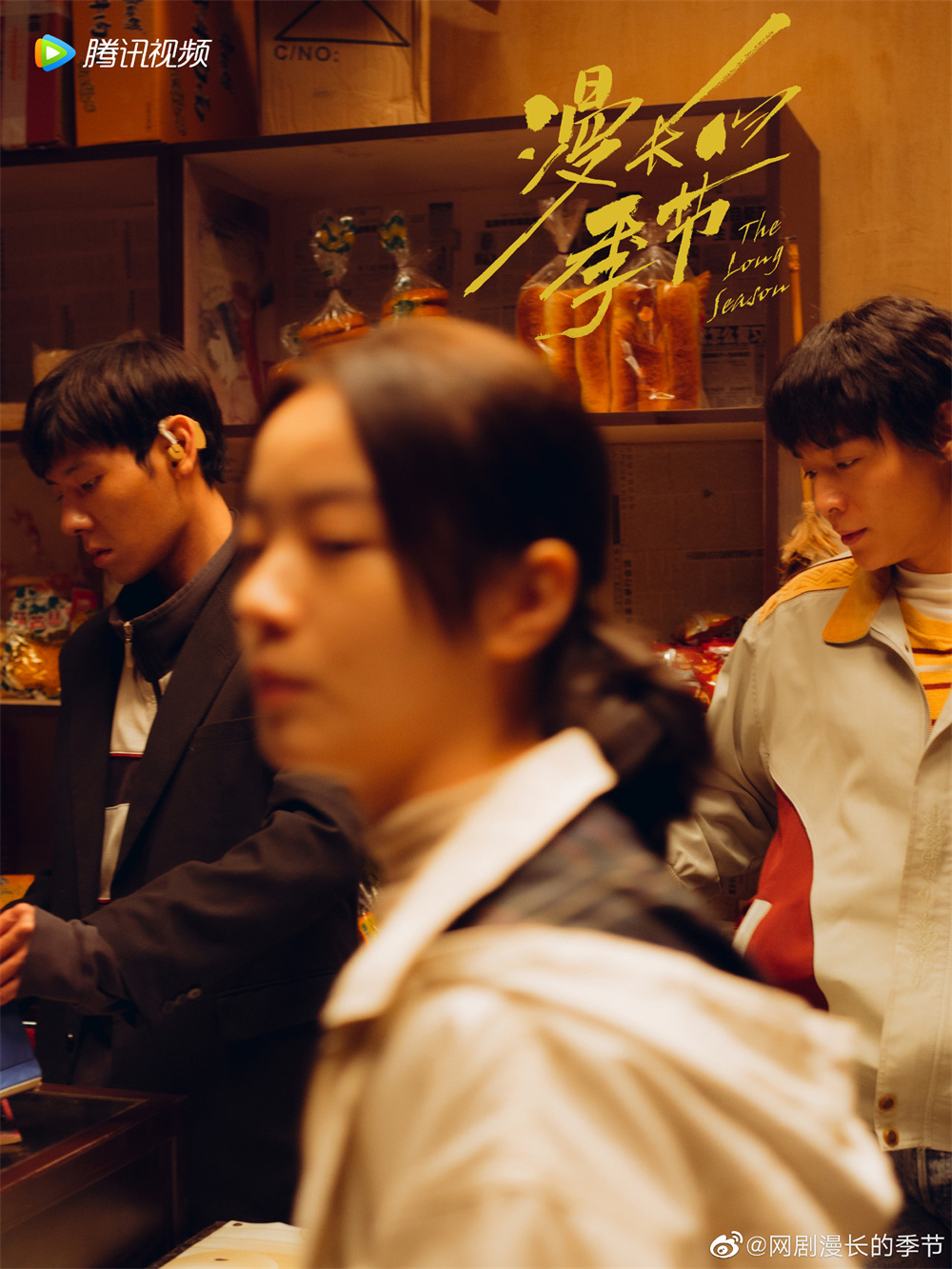
"The Long Season" Stills
3
The breakthrough of "The Long Season" is not only in the profound theme setting, but from the audience's point of view, no matter how heavy the theme is, it must be integrated into the good-looking images to be effective. How to make a drama truly "good-looking" is the greatest manifestation of a director's personal ability.
And the good-looking of this drama embodies several key aspects.
One is that the series adopts multi-line narrative. Xin Shuang broke the convention and completed the transformation of the three timelines with light and shadow changes. This move is very bold. You know, even movies rarely do this.
"Because marking the time is the easiest way in creation. I mark the time every time I transition, using different colors and frames to distinguish. There are many ways to let the audience know the timeline at once. But why didn't we Choose that way? Because in the process of our creation, we judge that such a way is not very helpful to the narrative of the story, but will have an impact on the story, and the audience will always notice the existence of that timeline. We want to pursue an effect. When the story is in the tenth episode, the two timelines collide to form a circular trend. The snow scene in the twelfth episode is the fusion of the past, the present, and the future. One, time is one."
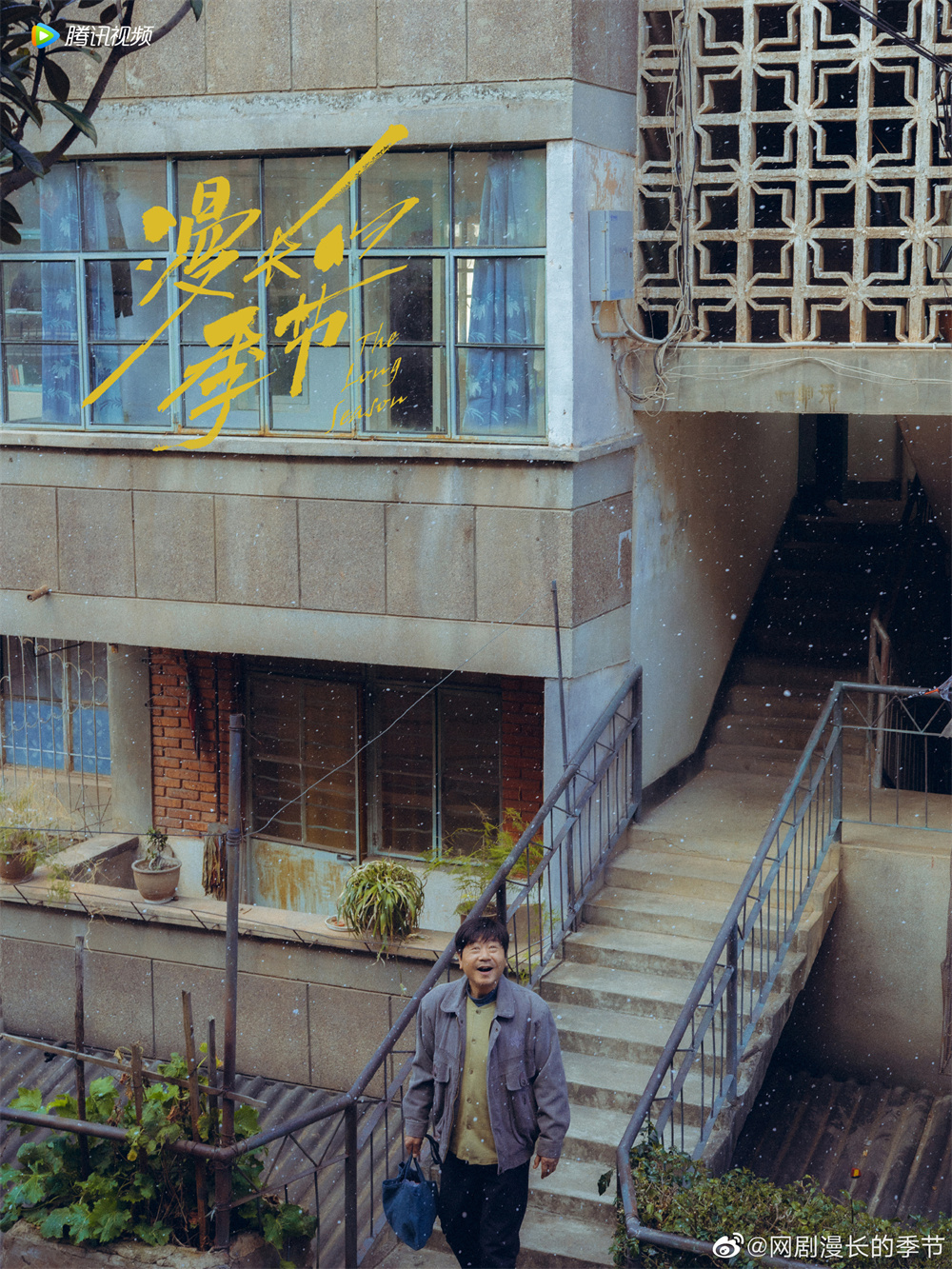
"The Long Season" Stills
Xin Shuang pointed out that he attaches great importance to narrative efficiency in his creation. "In one shot, we do the transformation of two eras, or the transformation of a character's state. This is a way of pursuing narrative efficiency."
In addition, Xin Shuang explained that marking not only "blocks" the narrative, but also "blocks" the audience from understanding the theme of the episode, "We are using time to tell time, and we need to hide the previous time to prevent the audience I deliberately noticed that it serves for the audience to better understand the concept of time."
In addition to the narrative method, the fusion of actors and characters in the series is miraculous, and it is also the part that attracts the most attention from the audience. Needless to say, the performance of the leading role, even the actors of various supporting roles have also been out of the circle. Some of them did not often appear on the small screen before, such as Lin Xiaojie who played Luo Meisu, who was active in American dramas all the year round; , and worked more in the drama circle before.
Xin Shuang explained that he only met the actors after the first round of screening and consideration by the casting director. The selection of these good actors is also a credit to the team. Xin Shuang emphasized, "Whether an actor is acting in a drama or a movie, whether the audience has seen it or not, it is not our standard. Our only standard is whether he is suitable for this role."
As for how the actors achieve good results on the set, I have to mention the drama "Marshal Ma".
Audiences who are familiar with Northeast film and television dramas can easily see Xin Shuang's sincere tribute to "Marshal Ma" in this drama. Of course, the participation of "Fan Debiao" and Fan Wei is the most obvious. British-style barbecue restaurant (Guiying is the name of a female restaurant owner in "Marshal Ma", she is also Fan Debiao's old friend, but in the end Fan Debiao failed her), and "In That Peach Blossoming Place" sung by three people in KTV It is Fan Debiao's famous song, Victoria Entertainment City and the same doorman actor, etc. You can also see through the tidbits that Xin Shuang also has the same jacket as Fan Debiao.
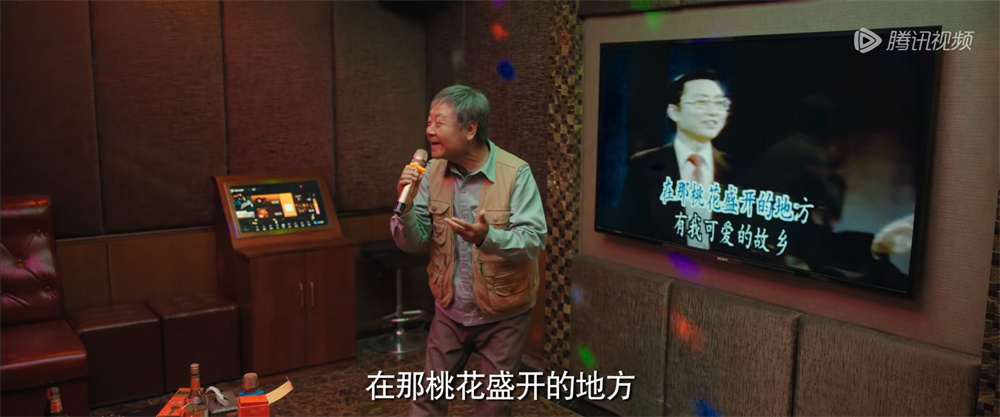
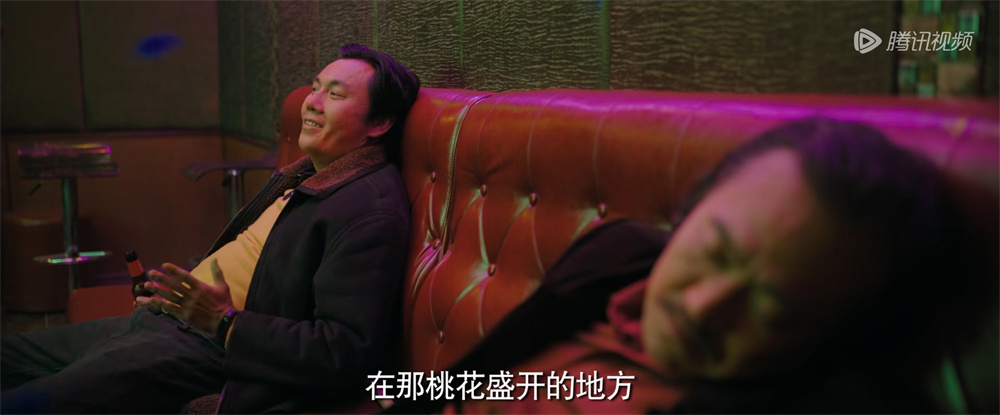
Three people sang "In the Place where the Peach Blossoms Bloom" at KTV
Xin Shuang liked "Marshal Ma" very much. When he was a child, he thought this drama was good-looking, and it was an undoubted childhood memory. After becoming a director, he paid more attention to the state of the actors in this drama. "I will deliberately find some "Marshal Ma". Behind the scenes, watch the behind-the-scenes documentary they made at that time, see what kind of creative state they were at that time, learn something from it, and see how to make the play look more life-like, and all the actors perform more flexibly and more Flow. The performance in that drama is very free, which is a kind of performance atmosphere that I like."
He set up the plot related to "Marshal Ma" to reflect the theme of the series itself, "I hope that the audience can feel the proposition of time both in and out of the play, which is to some extent assisting the narrative." The same teacher who played the door boy came to participate in this role, "At that time, he was a young man in "Marshal Ma", and now he has become a middle-aged man. This is also the trace left by time on people. , also undertook the theme of time and fate changes in this drama."
However, some technical issues have caused some controversy, such as the special effects makeup of the actors. Almost all the main actors in this drama wear old-age special effects makeup. The effort of special effects makeup is reflected in many tidbits. For example, Qin Hao, who has changed a lot before and after makeup, spends 4 hours a day on makeup and 2 hours on makeup removal . Is it really necessary and worth it?
"It is the most suitable way to present this story. Suppose we simply age a character, maybe we don't need the complexity of physical special effects makeup, but what we are after is not to simply age the character, what we are after is What people experience in time, what kind of traces and changes time will leave on people, special effects makeup should take on a narrative role.”
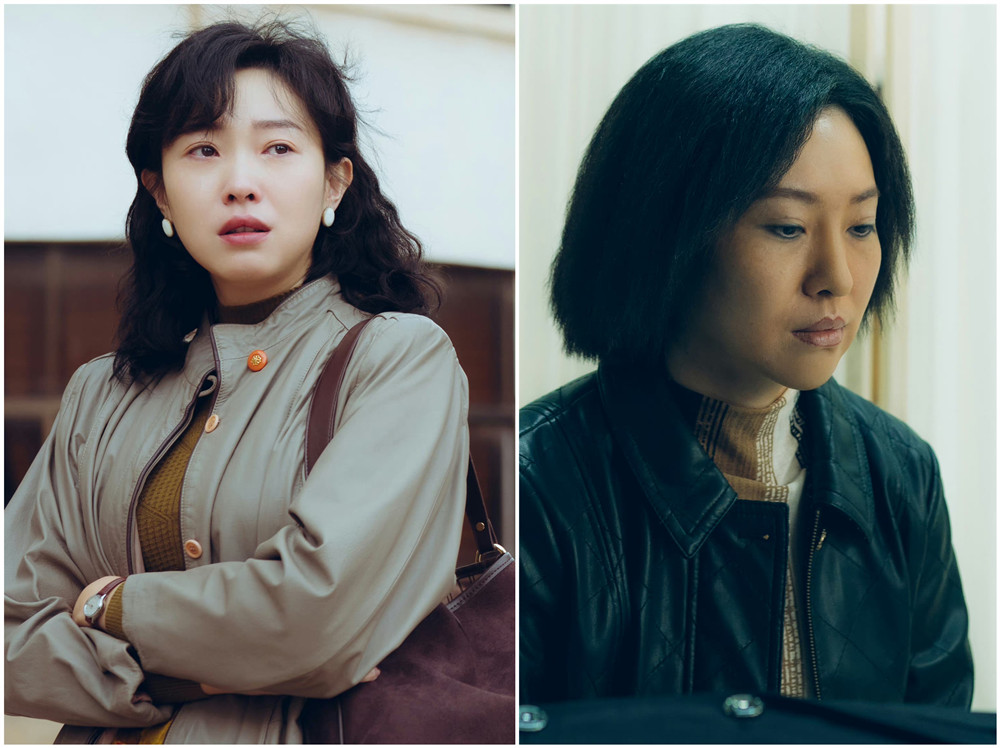
Young Huang Liru and middle-aged Huang Liru, played by Wang Jiajia
Xin Shuang gave an example. For the role of Huang Liru, 20 years ago, she was a very beautiful person. After 20 years, as soon as the shape came out, the audience would immediately understand what this person has experienced in 20 years. "How do we show that this character has something It has changed, but some things have not changed? This shape has already made it clear.” Another example, Gong Biao’s stomach, legs and skin color, everyone can see the image of this person, standing next to a taxi, and you will know what he is doing. It is the driver profession, which will bring him the characteristic of darkening skin color.
"This change has assumed the function of narrative, and we have not considered how difficult it is, or the efficiency of narrative." Xin Shuang said.
He also explained that the special effect makeup will be tested repeatedly in the early stage, including communicating with the actors. The test method is to use the camera to directly watch the range of the various facial expressions of the actors during the performance. Therefore, regarding the so-called loss of performance, as a director, he is looking at the final effect, "performance is not something that exists in isolation."
4
The rareness of "The Long Season" is that besides the case and the profound theme, there is also poetry and music.
At the end, the poems written by Ban Yu appeared many times. The scene where Wang Yang and Shen Mo read poems on the railway tracks was also one of Xin Shuang’s favorite scenes. It was when the team went to Kunming to survey the scene together. Surprise scene.
"There are many, many large industrial machines on it, which looks very much like a playground. There are many beautiful vegetation under the large machines. We think it forms a very interesting feeling. In an industrial environment, there are still many very There is something alive. This is also in line with what I am after, the concept of half a meter off the ground."
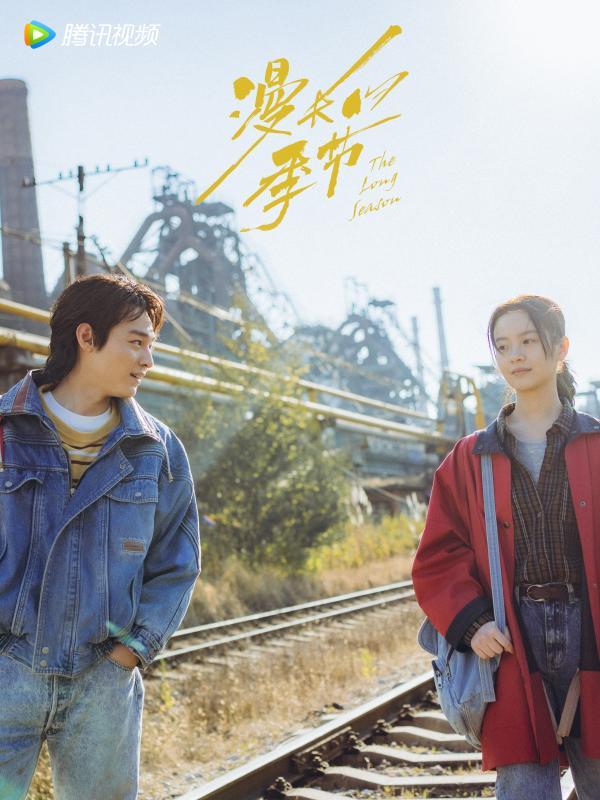
"The Long Season" Stills
At the end, Wang Xiang and Wang Bei sat together and read four more lines of the poem. From the perspective of the play, this is also an echo. When this poem appeared for the first time, Wang Xiang instructed Wang Yang that there should be a line of "didadidadida", but the situation of the scene is that there are conflicts and contradictions between the father and son, and they don't understand each other. . At the end, Xin Shuang used this to express that Wang Xiang was finally able to read the poem generously and with a very calm mood, and at that moment the father and son found a way to understand each other.

Wang Xiang guides Wang Yang
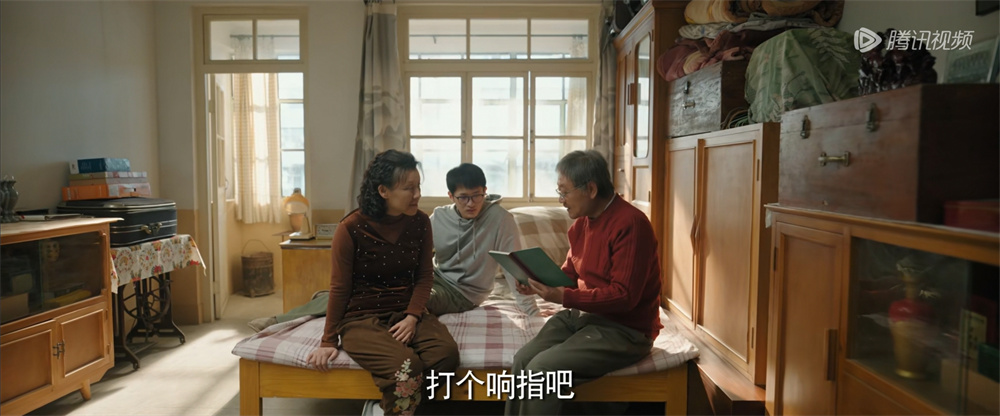
Wang Xiang read out Wang Yang's poem
There is also some poetry, which can be felt throughout the whole play. For example, the whole play is full of comedy elements and funny Northeast dialects, but in the final ending, the reality has already buried cruelty, teenagers die early, people who don't deserve to die, people with hard fate, people who are about to change their luck, and people with good fortune People are all going to die. The contrast between sadness and joy is romantic and poetic. This may stem from Xin Shuang's thinking about life and death.
"Sorrow and joy are the normal state of life. In fact, you can even jump out to see. What is mentioned here is not just the Northeast, it is something common to all human beings. It is about fate. Destiny must contain sadness and joy. Everyone sees things differently. , does not mean that death is sad. Death is a very neutral thing, it is fair to everyone, and everyone has to experience it.”
Poetry is also conveyed through music.
For example, the premiere of "The Blue Danube" was set against the time of the cruelest case. This soundtrack is impressive in the whole play, and it is a wonderful match. At that moment, everyone's fate is tied together.
This is also a piece of music that was determined later in the whole play. Xin Shuang was born as a musician and has a high sensitivity to music, but he has never thought about what kind of emotion he should use to express the plot, and he couldn't find a suitable song. "One day, I called my son's little genius phone watch, and the ring tone was "The Blue Danube". In this way, he spread "The Blue Danube".
"This song is actually very rational. It doesn't contain any subjective color, it doesn't exaggerate emotions, there are no changes in sad and happy emotions. It just quietly watches the fate of everyone change at that moment. The end of the tenth episode also Conveying similar feelings, it is a very objective and rational music that looks at the destiny of mankind."
At the end, "Looking Back Again" pushed the atmosphere of the whole play to a climax. Xin Shuang believes that after reading this story, all audiences will have an emotional extension. The story is over at that moment, and you have to return to reality and face your own life. And the lyrics and melody of this song are very in line with the state of mind of the audience at that time, because after the completion of the entire script, as an audience, this sentence is in his mind——
"Tonight, there will be no more difficult old dreams."


